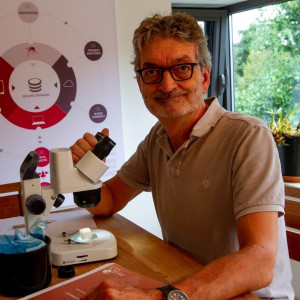 \
&
Contact us
\
&
Contact us
 \
&
Contact us
\
&
Contact us
Published on | 6 months ago
Programmes Enhancing EU R&IKatowice in Poland is the European City of Science this year (more info about the programme at the bottom of this article). It will be the last year that this title is awarded to one city. Under the current Horizon Europe Widening Participation and strengthening the European Research Area (Widera) work programme the call Science comes to town is open for applications (call deadline 25 September 17:00 CET) and it is expected that one consortium of European cities will be funded.
This group should organize a year-long programme promoting R&I in Europe and fostering dialogue and exchange on science and its role in society, improve communication of science to the public, enhance the discussion and debate on the future of science and R&I policy in Europe, and it is expected that the project contributes to improved appeal of younger generations to careers in R&I through organizing European-wide science competitions i.e. EUCYS, EU TalentOn and similar activities.
All expected outcomes, the scope and call specific conditions can be consulted on the Science comes to town call topic page on the European Commission Funding and Tenders Portal. The call was presented during an info day and contains a testimonial from the director of the 2022 European City of Science Leiden (recording and slides).
The European network of science centres and museums (ecsite) has published a call for its full members (for at least the past two years) to participate in a proposal under the coordination of Ciência Viva, the National Agency for Scientific and Technological Culture in Portugal. Deadline for expression of interest is 31 July. Ecsite has organised a first info session (recording) and plans a second one on 29 August. More information about the proposal they are preparing and their next steps is available on their website.
European City of Science 2024 Katowice
Katowice in Poland is the European City of Science in 2024. The year-long programme and activities are published on the dedicated website. Part of this years’ European City of Science programme was the 11th edition of the EuroScience Open Forum (ESOF) in June with the theme ‘Life changes science’. During the event scientists, entrepreneurs, politicians, journalists and citizens discussed the latest scientific achievements, the arts and their impact on society.
What lies ahead is the second edition of the EU TalentOn contest. During EU TalentOn a group of selected researchers between the ages of 21 and 35 years old, will work in a team to come up with the best scientific solutions for challenges linked to one of the five EU missions. The contest finale will take place between 9-14 September in Katowice.
Furthermore Katowice is hosting the 35th edition of the EU Contest for Young Scientists (EUCYS) This competition is open to young scientists aged 14 to 20 who have won first prize at their national science competition and have been nominated to represent their national contests at EUCYS which takes place also from 9 to 14 September.
We offer news and event updates, covering all domains and topics of Horizon Europe, Digital Europe & EDF (and occasionally, for ongoing projects, Horizon 2020).
Stay informed about what matters to you.
By signing up, you can opt in for e-mail notifications and get access to
a personalised dashboard that groups all news updates and event announcements in your domain(s).
Only for stakeholders located in Flanders
Digital, Industry & Space Digital Europe Cybersecurity Defence
We would like to inform you that the Commission has adopted and published the European Defence Fund Work Programme 2025. The news announcement (with links to the documents and a factsheet) is available on DEFIS website: https://defence-industry-space.ec.europa.eu/european-defence-fund-over-eu1-billion-drive-next-generation-defence-technologies-and... read more
RI Digital, Industry & Space Agro-Food, Environment
The Central European Research Infrastructure Consortium (CERIC-ERIC) is calling for proposals for coordinated access to more than 60 instruments and support laboratories for research in all fields of materials, biomaterials and nanotechnology. A detailed description of the facilities available in CERIC can be found here. Access to CERIC is op... read more
Security Digital, Industry & Space Cybersecurity Defence
If your organisation is focused on cybersecurity, you know there’s no time to waste in getting projects up and running. While we await the official publication of the Horizon Europe and Digital Europe 2025 work programmes, here you can find a selection of open cascade calls that could be relevant to your business: CyberSecDome Open Ca... read more

Avia-GIS is a Belgian innovative SME established in 2001. They have built research and public authority trust over the past 19 years and developed a unique, disruptive software suite - VECMAP® - that supports society to overcome one of its important health threats, the spreading of Pests of Public Health importance.
With the help of a Horizon 2020 SME Instrument Phase 2 project, they will be able to add Integrated Pest Management functionalities and go to the market. With the grant, that was an essential component of their second investment round, Avia-GIS aims at raising its revenue from the current 2 M€ to 14.2 M€ in 2024, and increase the headcount from 15 to 58.